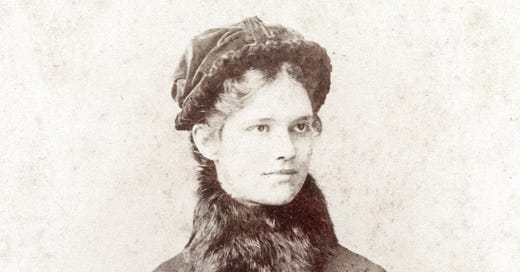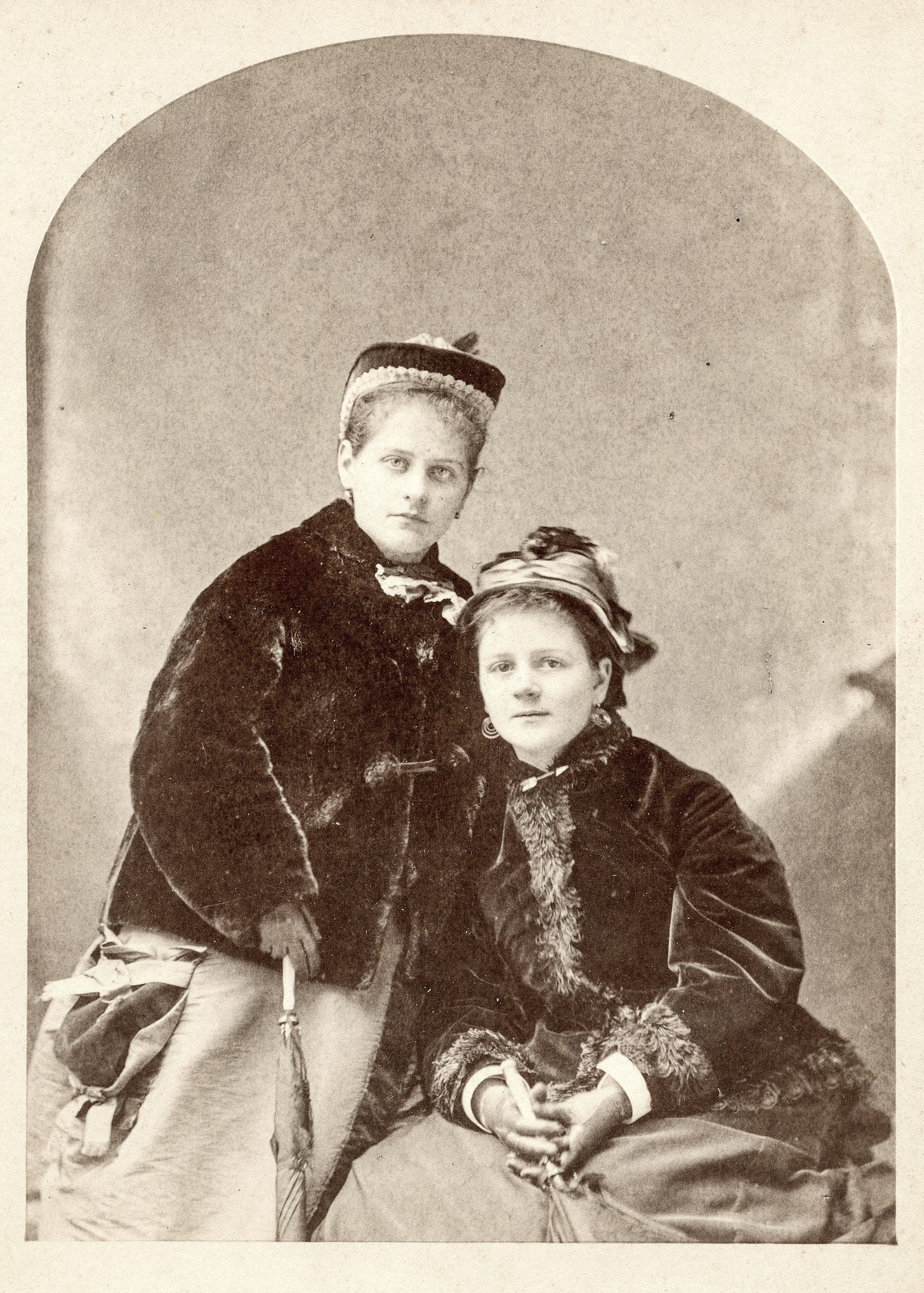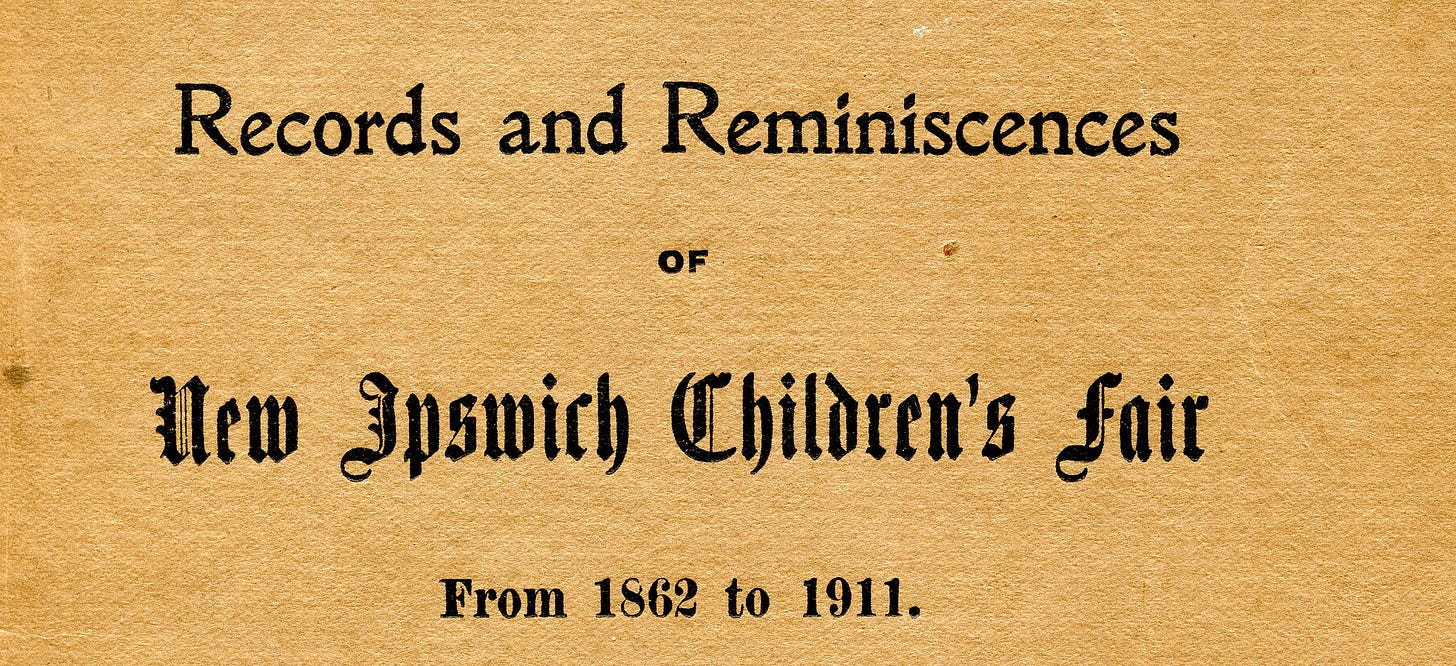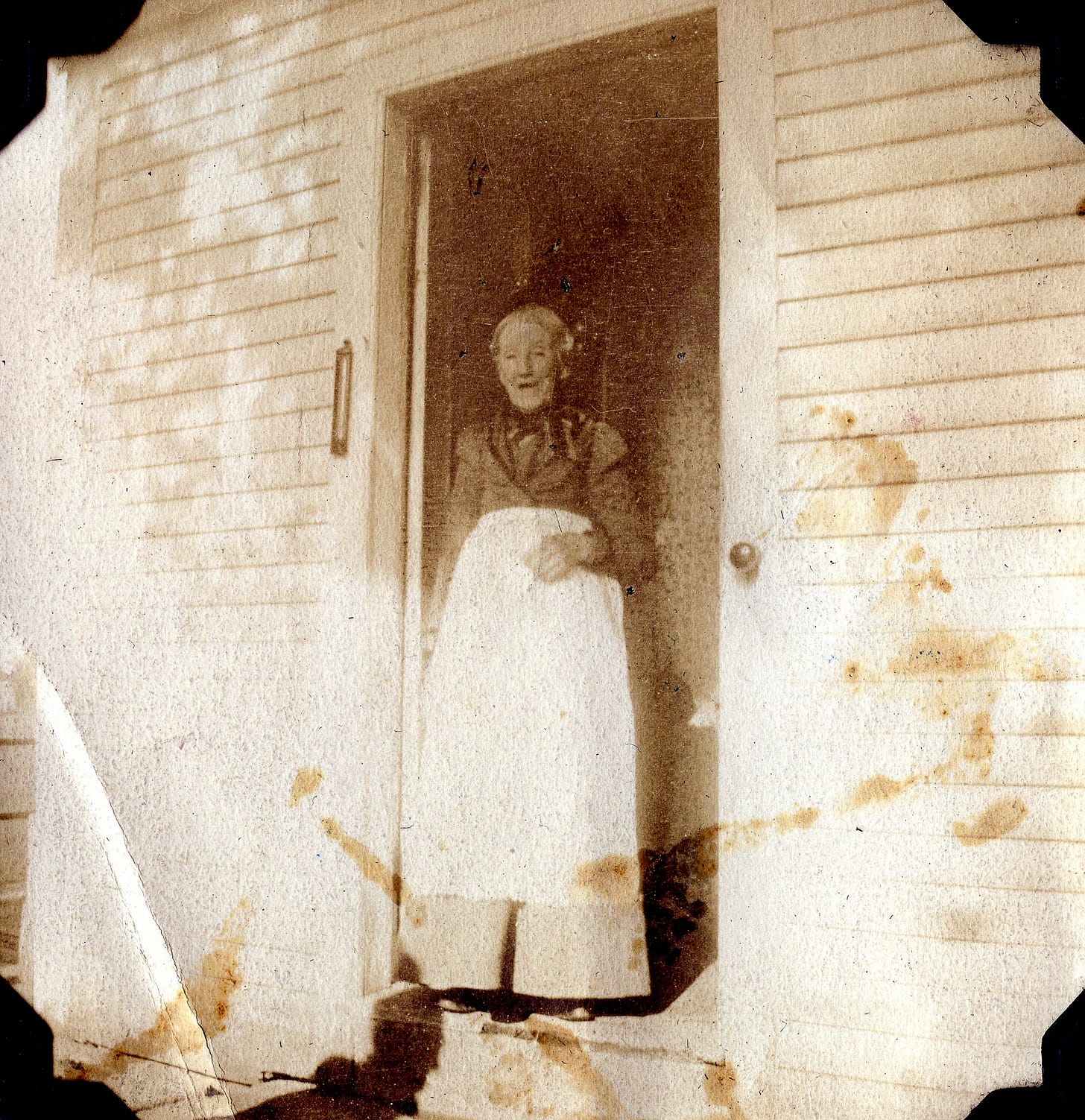Caroline Barr Wade
Caroline is listed as one of the people on the committee who aided Professor Charles H. Chandler in the writing of the History of New Ipswich. From the introduction:
For many years citizens of New Ipswich have felt the need of a history of the town which should not only give the history of the last half century, but should put in accessible and permanent form the many facts and traditions which have come to light in later years. This feeling took tangible form from the offer of Professor Charles H. Chandler to give his services as a historian, and in October, 1907, a meeting of those interested in this project was held at the Library. A Committee was chosen to aid as might be needed, consisting of Caroline F. Barr, Sarah F. Lee, Frederic W. Jones, Anna A. Goldsmith, and Edward O. Marshall.
Photo of Caroline with her sister Laura.
On this day - July 17, 1908
James Roger diary entry
17th (Friday)
Cloudy, a little rain in afternoon. David and his men brought in the last of the meadow hay about 3 pm, then went over to Huckin’s and helped him with 2 loads. I went to golf course in forenoon and played 3 rounds with John Cummings. Got letter from Hamish and PC for Jim from Miss Dean from Scotland. Professor Lewis called in the afternoon.
On this day - July 17, 1897
William Jurian Kaula diary - no entry
Author - Mrs. Clark H. Obear
Continued (pages 20 - 21)
A Pause
After writing the above, in talking with a friend about what I was doing as a last gift to the fair on its fiftieth birthday, she made the remark, "I think it would be, interesting to the men and women who used to take a part in the speaking to see the things they said and sung with the other boys. and girls, and their names too."
The thought struck me favorably, and I resolved to put at the end of this little book I was writing, a fuller selection from former programs, and append the names of the speakers, both older and younger. It might please their children, or per chance their grand-children to know what their parents used to speak at Children's Fair when they were little." Having returned from my digression, I will say, it may be the specimens I had got ready for the "Records and Reminiscences" may bring to the mind of some young man or woman a remembrance of their first attempt at "speaking in public on the stage." Now, I'll return to my "specimens."
Mrs. McKown -" Mrs. Obear, can't you get up a few lines for a small boy whose mother is willing to have him speak at Children's Fair?" "It is rather late," I say. "I know, but four lines will do." "Four lines!" "Yes, he won't have time for more.".
"Why, it takes two lines to begin and two to leave off, and one wants to say something. If you will trust me, it will save. your time-send him over to me."
The little fellow comes. Perched on a high chair, feet on the round he gives attention. I have selected in my mind a practical lesson from the jingles of that old classic, Mother Goose's Melodies, known and loved by the little people of more than two centuries. I often have done this. I begin:
"Hickory, Dickory, Dock,"
Walter repeats.
"What time is it by the clock?
Time for me and time for you
To be finding something useful to do,
Time to play and time to work, But never a time to be a shirk,"
The jingle has caught his ear, and in a few minutes Walter Hardy goes home with his "piece" learned, I, giving him the injunction," say it just as you did to me" (accompanied by a jerk of his head on "never" to make it emphatic.)
A group of little girls were preparing to tell what they would be, or do when they were women.






